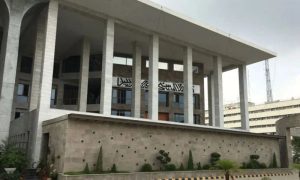PESHAWAR: As the international labor community observed International Labour Day, countless illiterate laborers in Pakistan remained oblivious to this global event.
While rallies and processions took place across the country, many laborers chose to continue working on this public holiday to provide for their families, whether in fair or exploitative conditions.
May 1st is commemorated worldwide, including in Pakistan, to honor the sacrifices of the 1886 Chicago workers who fought for an eight-hour workday. People gathered to reaffirm their commitment to ensuring proper wages and a safe working environment, under this year’s theme of “ensuring laborers’ safety and health at the workplace.”
However, amidst these celebrations, stories like that of Irshad Ullah, a marble miner from Warsak Road, shed light on the harsh realities faced by many laborers. Despite the holiday, Irshad Ullah continued cutting raw marble slabs in his factory to support his family, reflecting the relentless determination of individuals striving to make ends meet.
Labor Day serves not only as a tribute to workers but also as an opportunity to educate them about their rights and protect them from exploitation. Pakistan’s constitution and labor policies aim to safeguard laborers’ rights, including social security, old age benefits, and job protection.
Despite these legal protections, challenges persist, particularly for marginalized laborers such as agricultural workers and irregular workers in small shops and warehouses. Many face long working hours, minimal wages, and a lack of post-retirement facilities, highlighting the need for comprehensive labor reforms.
While provincial governments and federal institutions provide some employment benefits, the majority of irregular workers remain deprived of these privileges. Therefore, it is imperative for governments at all levels to prioritize the protection of laborers’ rights, as they form the backbone of the economy and contribute significantly to national progress.
























